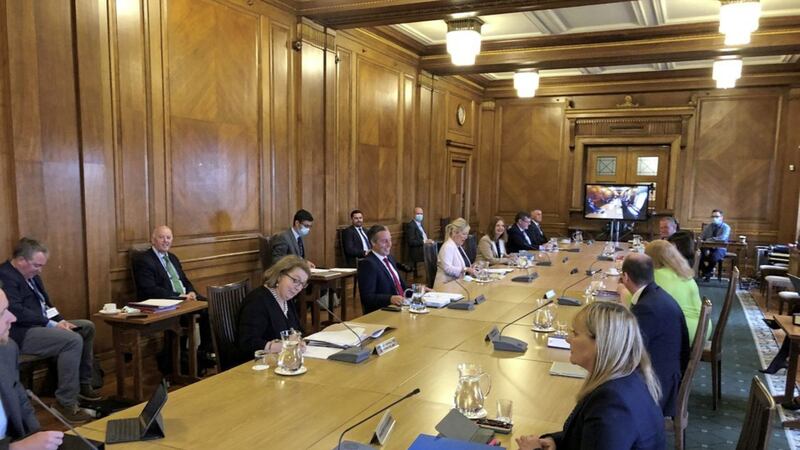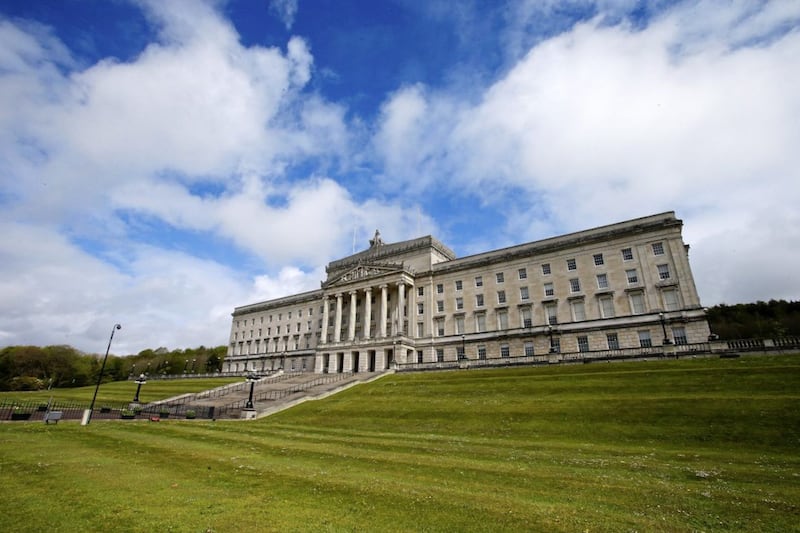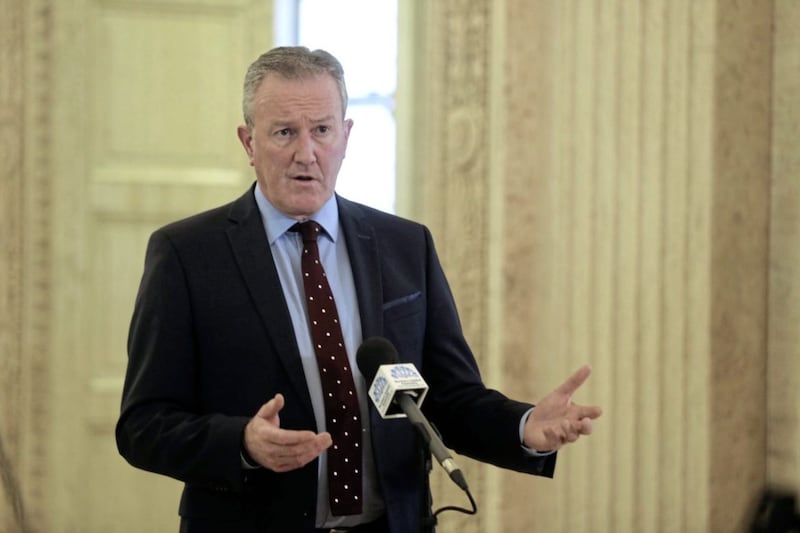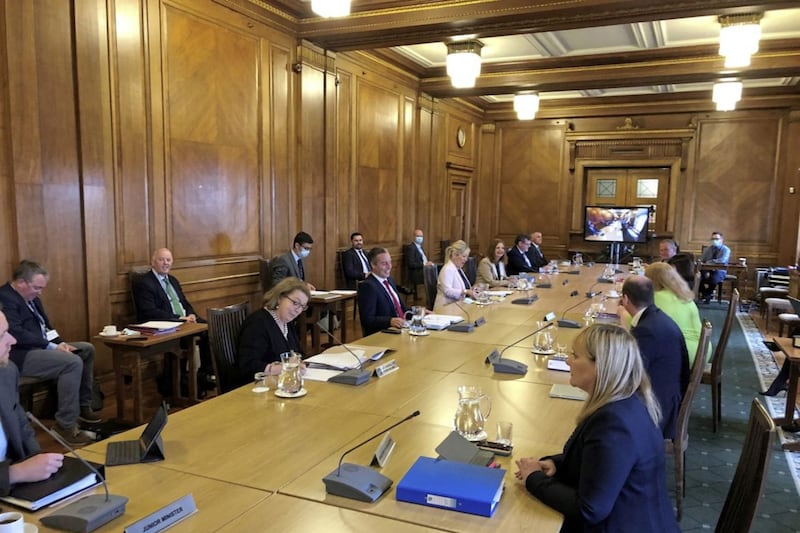THE new commission set up to examine whether additional tax powers could be devolved to Stormont has produced its first body of work.
In some 200 pages, the interim report from the Fiscal Commission for NI answers that yes, the likes of income tax and excise duties on alcohol, tobacco and petrol could technically be devolved.
But in a sober reading of the state of the Northern Ireland economy, it makes no bones about the financial risks involved.
Anyone remotely in tune with the workings of the executive may also ponder the political ramifications of granting additional fiscal levers to our leaders.
The commission is keen to point out that the Executive already has its hands on some of those levers, but opts not to exercise them.
Top of the list is water charges. The political decision not to issue water bills to households cost the executive £345m this year alone.
The average household rates bill in the north is also well below what households in England, Scotland and Wales pay in council tax and water bills.
In fact, the commissioners estimate that the areas where Stormont charges less or provides more than in other parts of the UK, cost around £600 to £700 million in 2020/21.
So that begs the question, if a multi-party executive at Stormont was handed powers to set income tax, could it reach agreement to raise the rate?
In their report, the commissioners said virtually everyone they spoke to, brought up the political capacity of the Executive.
They also flagged up the Northern Ireland Audit Office report which raised serious concerns over the leadership and delivery capacity within the civil service here.
And of course, there’s the fragility of the institutions, put on display this week by the leader of the biggest unionist party doubling-down on a threat to collapse them.
One striking thing reading the Fiscal Commission report is the blunt assessment of the inherent weakness of the Northern Ireland economy.
Income per capita here is 25 per cent lower than the UK average, while public spending is 20 per cent higher.
The catch-22 here is that changing the north’s long-standing reputation as the poor relation of these isles may just need the devolution of something like corporation tax.
It currently raises just £810m here. Meanwhile in the Republic, where the rate for now remains 12.5 per cent, corporation tax is set to bring in around £12 billion this year.
Even if Dublin takes that up to 15 per cent, which it says it will, the UK is going to 25 per cent in 2023.
The Fiscal Commission said it won’t do any more on corporation tax, owing to the years of work already done on the matter, including legislation passed in Parliament.
For it to progress, it says the Executive and Treasury need to trash it out between themselves.
Chair of the Fiscal Commission Paul Johnson, said the upfront costs involved in devolving corporation tax, including the loss in revenue, makes it a big gamble for Stormont.
But given the position the Northern Ireland economy finds itself in, he said it might be a gamble worth taking.








